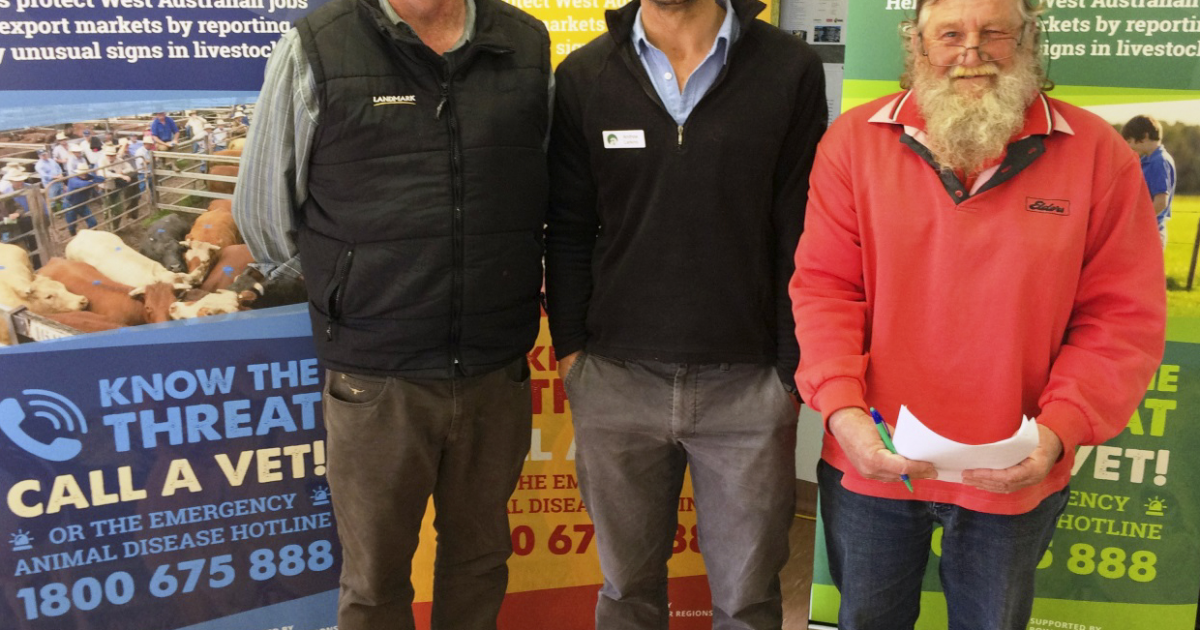The Department of Primary Industries and Regional Development (DPIRD) has invested in a series of emergency animal disease workshops delivered to livestock saleyard workers throughout Western Australia.

Department veterinary officer Rod Thompson said the workshops were designed to further develop the skills of livestock workers in detecting signs of emergency animal diseases.
“Saleyard workers are in contact with livestock from all over the State every day, which makes them an ideal line of defence against emergency animal diseases,” Dr Thompson said.
“Western Australia’s livestock sector is built on its reputation for high quality, healthy livestock and livestock products with 80 per cent of our product exported to overseas markets.
“To protect market access and control the risk of disease spread, livestock must be regularly checked for signs of disease, and any unusual signs reported to a DPIRD veterinarian, private veterinarian or the Emergency Animal Disease Hotline on 1800 675 888.
“Early detection and reporting of an emergency disease outbreak are critical in reducing the spread of disease and minimising the resulting economic and social costs.”
Dr Thompson said the workshops aimed to help saleyard staff understand the potential impacts of emergency animal diseases and provide them with the skills required to detect and report emergency diseases, particularly foot-and-mouth disease.
“Foot-and-mouth disease is a highly infectious, viral disease that affects cloven-hooved (two toed) animals including sheep, cattle, pigs and goats. If an outbreak of foot-and-mouth disease occurred in Australia, it could close many of Australia’s export markets overnight.”
Dr Thompson said it had been estimated that a large-scale outbreak of foot-and-mouth disease could cost Australia up to $52 billion, mainly in lost markets.
The workshops have been held over the last six months commencing at Muchea Livestock Centre, and more recently at Mount Barker, Boyanup and Katanning saleyards. Livestock transporters and stock agents also attended the workshops.
“Communication is vital in managing a disease outbreak and the workshops have been great in building and maintaining relationships between frontline livestock workers at saleyards, agents, livestock transporters, department veterinarians and compliance staff,” Dr Thompson said.
The early detection of emergency animal diseases workshops are a part of the department’s Boosting Biosecurity Defences project supported by Royalties for Regions.
For more information on recognising foot-and-mouth disease, see the DPIRD website agric.wa.gov.au.


